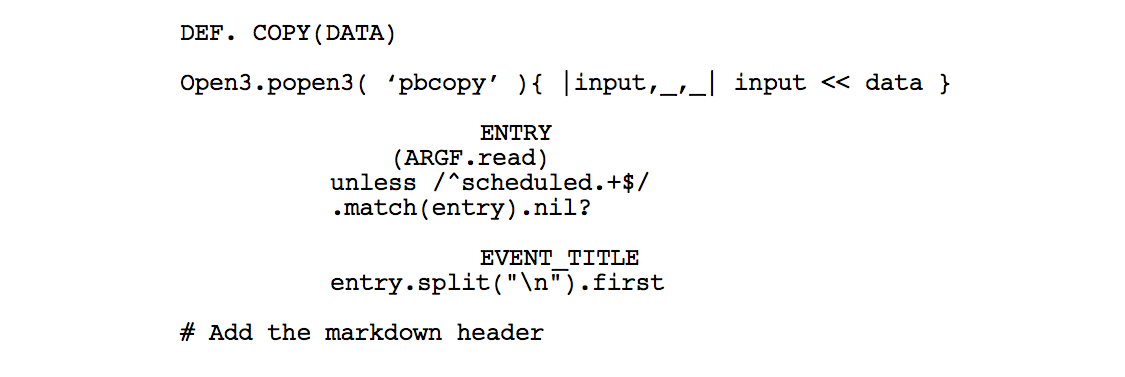Coding vs. Screenwriting
Fear of the Blank Page

There are two types of writing that consume most of my time. One is a passion and something I hope will be my career, screenwriting. The other is a hobby, coding.
But even though creative writing is so much more important to me, I start and complete far more coding projects. Why?
Coding Never Starts from Scratch
Coding is less intimidating than screenwriting because my tools are more expansive and my goals more limited. When I get an itch to code something (for instance a script to convert iCal calendar entries into Markdown), the goal is small, obvious, and concrete. But more importantly, I never have to start from a blank page.
Depending on what tool I’m using, there are thousands of projects, gems, or code snippets to pull from. I can “hack” a script to do what I want while outsourcing all of the heavy lifting. All I have to do is stitch together pieces created by far smarter, far more skilled programmers.
Creative Writing Means Reinventing the Wheel
But screenwriting means facing the blank page. You have language, formatting, and conventions to build from and little else. It’s more akin to programming in something like machine code.
There’s no Bootstrap story you can load and tweak into a final product.1 Sure, you can build off the structure or character or ideas of others.2 But a good screenplay is driven by theme. Those basic story elements shouldn’t be interchangeable. They should be carefully chosen to develop and further the core idea.
Aiming Smaller
I can’t add functions or loops or libraries to screenwriting, but I can aim for smaller more concrete goals. I’m writing more tweets, more blog posts, and also reading up on short fiction. My hope is that by writing more small creative projects, I can feed off the same sense of satisfaction I get from solving small, everyday annoyances with code. Maybe if I do it for long enough, I’ll even forget to be scared of the blank page.
-
Some screenwriting books like Save The Cat offer pre-made outlines for writing films. Having read hundreds of scripts as a working coverage reader in Hollywood, I can say that screenplays written this way are almost always hollow, predictable, and unsatisfying. ↩